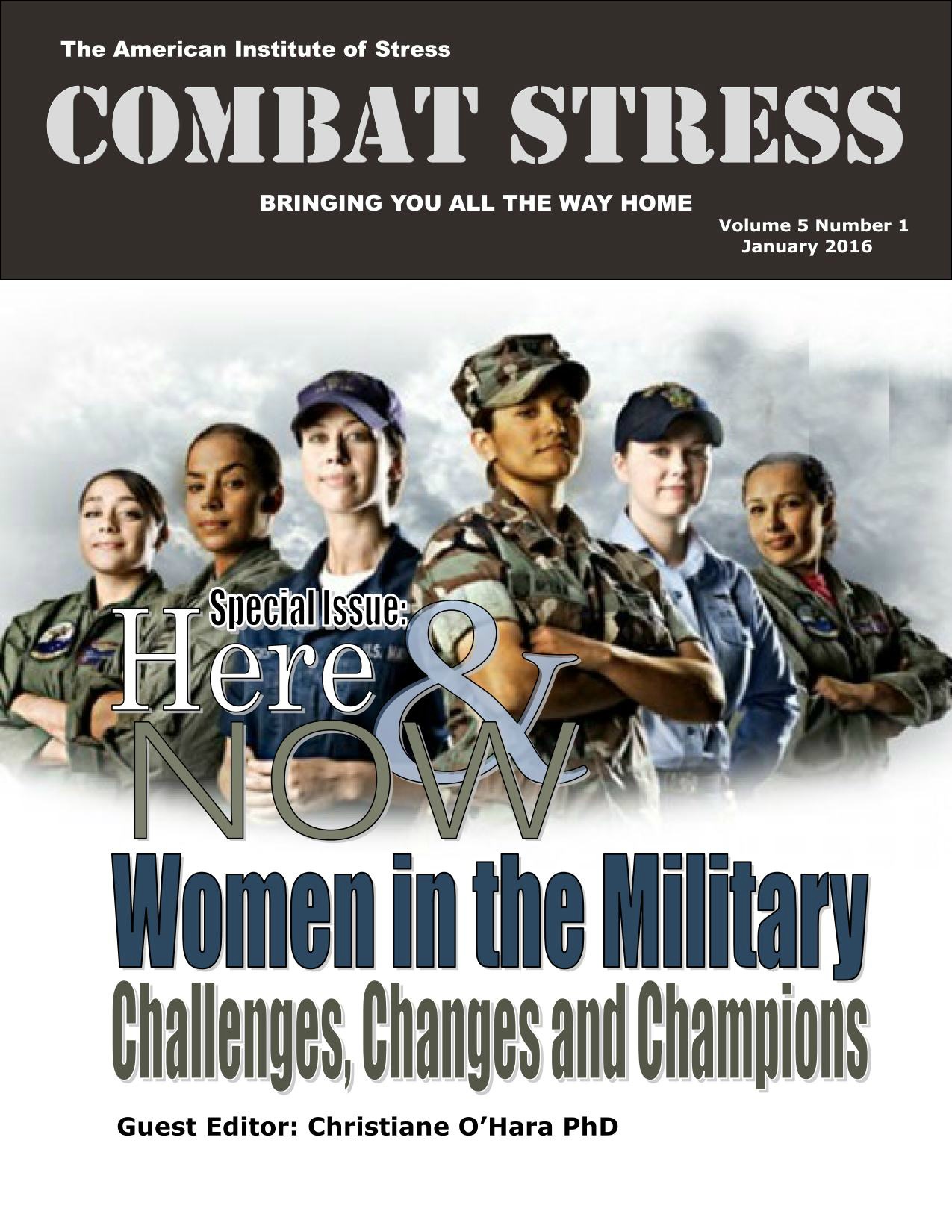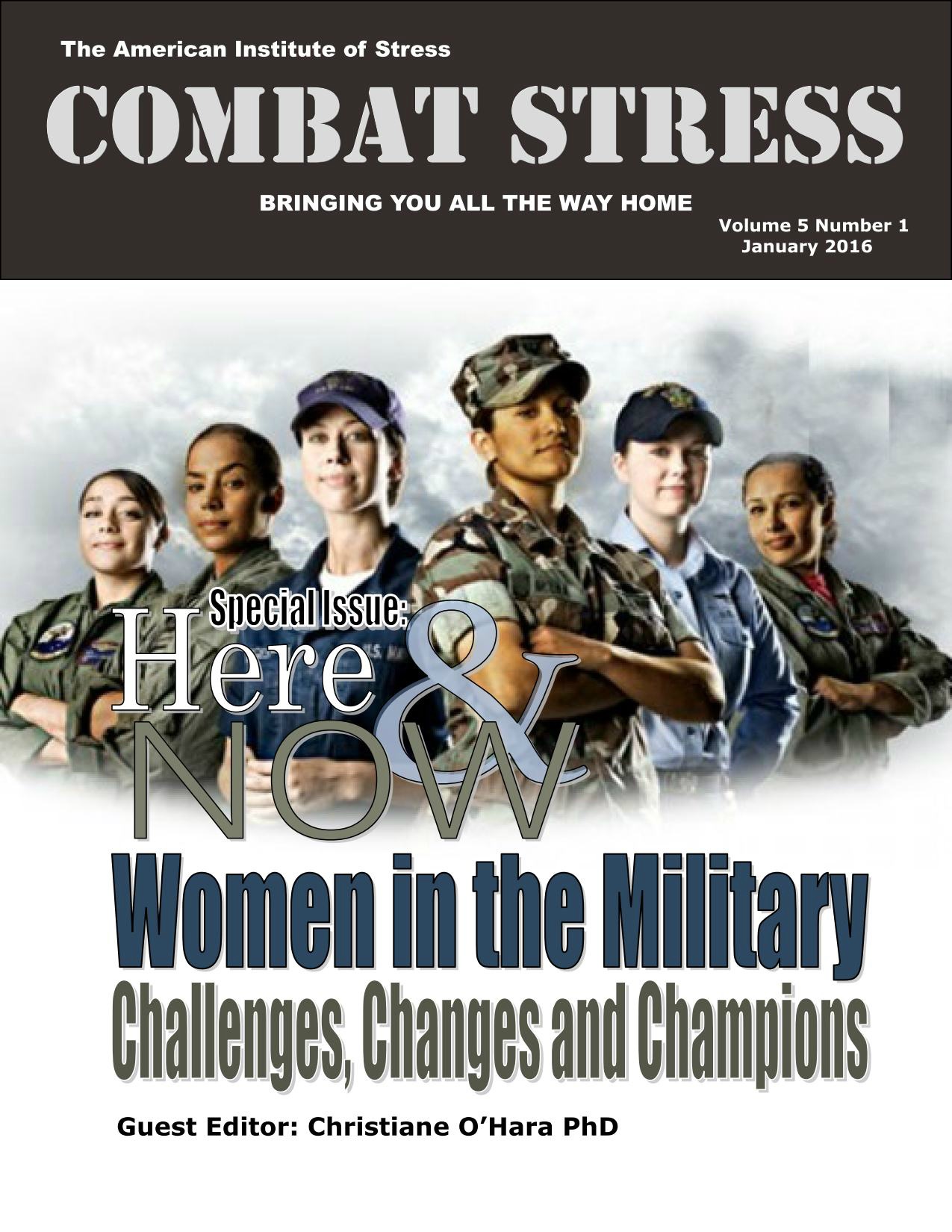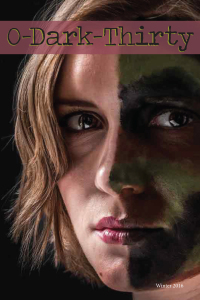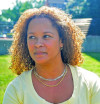
 I was honored to be asked to contribute to the January, 2016 edition of Combat Stress Magazine from the American Institute of Stress. The special edition that carries my essays is called, Here and Now, Women in the Military, Challenges, Changes and Champions.
I was honored to be asked to contribute to the January, 2016 edition of Combat Stress Magazine from the American Institute of Stress. The special edition that carries my essays is called, Here and Now, Women in the Military, Challenges, Changes and Champions.
It’s a very different sort of publication from where you’d usually see my writing, but the editor, Christiana O’Hara, PhD, seemed interested in my take on the importance of women telling their own stories, especially when it comes to their military experience, including those that explore the aftermath of war.
In the piece, Read the women who have gone before you; (pg. 38), I talk with Jerri Bell, a former Navy intelligence officer, author and advocate for women veteran writers, who has made listing works by women veterans a pet project that grows more impressive as she continues to build this extraordinary reference. Her goal is to capture and recognize as many as possible and to bring recognition to the veteran status of authors of works we already know.
From Louisa May Alcott’s Little Women – Alcott was a nurse during the Civil War, to Dr. Mary Edwards Walker, a surgeon, spy, prisoner of war and the only woman awarded the Congressional Medal of Honor. Walker wrote two books, Hit; Essays on Women’s Rights, (1871) and Unmasked; or, the Science of Immorality (1878), a book that explores infidelity. These are only two authors of the scores of books already on library shelves which we may not realize were penned by women veterans.
I spoke to Bell, about her work on this list and why the project deserves our attention.
Q: What made you decide to pull this list together? I know the one article prompted you, but your list is really extensive and had to have taken some time to pull together. Was it like, once you started you couldn't stop?
In 2013, I joined the staff of the Veterans Writing Project – a nonprofit organization that offers free writing seminars for veterans and family members, and publishes their work in print and on line. Director Ron Capps had noticed that women veterans attending the seminars weren’t speaking up or participating as much as the men, and he challenged me to put together a special seminar just for women veterans, to give them a safe space to tell their stories.
First I looked at our seminar curriculum, Writing War. It’s a craft-of-writing book, and when Ron wrote it he found examples of craft in books by veterans from Leo Tolstoy to Tobias Wolff. But in the entire book, there was only one example of writing by a woman veteran: Vera Brittain, a British woman who served as a nursing aide in World War I and who wrote a classic memoir, Testament of Youth, (also now in film) I thought: surely there must be more, and I started looking for writing by American women who had served in the military. I only found two books: Kayla Williams’s memoir Love My Rifle More Than You, and the poetry/nonfiction anthology Powder: Writing by Women in the Ranks, from Vietnam to Iraq.
About six months later, civilian novelist Cara Hoffman (Be Safe, I Love You) wrote an op-ed for the New York Times, “The Things She Carried,” in which she lamented that the narratives of women veterans were “nearly absent from our culture” because they simply weren’t being told. Kayla Williams responded in the Los Angeles Review of Books with a list of books by women veterans. Game on!
Once I started running those books through the search engines, I found others. Eventually I went to the Women in Military Service for America Memorial, where I spent three hours sitting on the floor taking notes on the books for sale in their gift shop (and getting a lot of funny looks from both the staff and the tourists). That led to an annotated bibliography of writing by and about women veterans, by historian Judith Bellafaire. She cataloged hundreds of books, most self-published or printed in limited runs by small presses, and a sampling of newspaper and magazine articles. She also listed a number of unpublished memoirs in archives and libraries across the country. Friends who knew I was curating a bibliography of women veterans’ writing shared their sources, and Susan O’Neill – a writer who’d served as a nurse in Vietnam – walked up to me at a conference and gave me a copy of her excellent short story collection.
Eventually I learned that the one woman who was awarded the Congressional Medal of Honor had written two books. Another American veteran (who had to serve in the British Women’s Auxiliary Air Force during World War II because she physically didn’t qualify for service in the American Women’s Army Corps) not only won the National Book Award, but also founded the PEN/Faulkner Award for Fiction. Who knew that women veterans had that literary heritage?
Q: The books are extremely diverse and aside from the fact they're all written by women veterans, is there something consistent you find in them? Something maybe only a female veteran writer can bring to the table? (I figure that's a no, but I'd like to hear your thoughts on it.)
Civilian author Tanya Biank says in her book Undaunted that the military has a “curious mix of traditional men and unconventional women drawn to its ranks,” and I think that “unconventional women” is a perfect description of many of the women veterans who have written their memoirs. Women veteran memoirists often reflect on ways in which their service was something new, something unconventional, even something socially unacceptable to many. Kayla Williams has said quite correctly that “no woman joins the military to prove her manhood,” and you also see in the memoirs that most women who wrote about their service claimed to have joined either out of a sense of civic duty or economic necessity. The memoirs of women veterans cannot be understood out of the historical context of the times when the women served. Many women veterans also wrote about the challenges and rewards of gender integration in the armed forces – most men writing military memoirs don’t have much to say about that.
I have some theories about what might be unique in contemporary fiction by women veterans, but since I’m still curating the bibliography and working on a military nonfiction book (with former Marine Tracy Crow; due out in spring 2017), I haven’t yet had time to do enough close reading and critical thinking to find out if the books and stories bear the theories out. I’ve proposed a paper for an academic conference on fictional depictions of women veterans who experienced trauma, and if the proposal isn’t accepted I’ll eventually do the work anyway and blog about it instead of writing an academic paper. I’m also looking forward to hearing the perspectives of other women veterans who write at our upcoming panel at the Association of Writers and Writing Programs (AWP) Conference in Los Angeles in 2016.
But don’t ask me about poetry – I don’t know enough about poetry to string together a coherent sentence!
Q: This section about these books will go along with an essay I wrote about the importance of women to write their experiences. I start out with a quote from W. Churchill when he said, "History will be kind to me because I plan to write it." What are your feelings on that topic? Why is it important for women veterans to write their stories?
I think that women veterans who have the desire and ability to write their stories – whether as memoir, or in fiction or poetry – also have a kind of obligation to write. To tell it like it was, and not to leave it up to the journalists, the historians, and the pundits to tell our stories for us.
Classicist Mary Beard argues in the London Review of Books that there’s a gendered aspect to public speaking and silence that goes all the way back to ancient Greece: the right to speak in public not only belonged exclusively to men, but was a defining attribute of maleness. That was certainly the case when I was serving – I joined the Navy three years before the Tailhook scandal broke, and women in uniform all saw what happened to Paula Coughlin when she spoke up and challenged the status quo. If you wanted to stay in, you kept your head down and your mouth shut. We were also conditioned to think that anything we said or did reflected not just on ourselves, but on all women serving. So not only were we silenced: we were made complicit in that silencing. But in modern America women have a right to speak up, and perhaps even an obligation to participate some way in the public discourse about America’s military and America’s wars.
I didn’t always think that way. When I got to grad school, our fiction advisor asked me to revise the chapters of the Navy novel I was working on – to write them from the point of view of a woman. It wasn’t that the male point of view character that I was writing was poorly done, he said; it was that he felt the themes I was exploring would be more interesting if the stories were told from a woman’s point of view. I flat-out refused. I was still on active duty, and I told him that I couldn’t do it. Women in the military just didn’t tell our true stories. The costs would be too high. I put my fiction thesis in File Thirteen within a month of graduation, and planned never to write anything about the military again.
Several years later, when I was revising the Veterans Writing Project seminar for a women’s class, I realized that I couldn’t ask other women veterans to take the risk of telling their stories if I wasn’t willing to tell my own. The first personal essay I wrote was picked up for publication immediately. It took longer to get some Navy fiction ready for submission, but the first of those stories has been accepted for publication and is forthcoming in the winter issue of CONSEQUENCE Magazine.
Q: Does it frustrate you that some of these books are so unknown? Do you think if they were more action packed or written by men that their appeal would have been or would be wider?
Not at all! I see it as an opportunity to revive interest in some of the earlier work, and to reconsider women veterans’ writing in light of the changing roles of women in the US Armed Forces.
If the books that women veterans have written were more action-packed they would certainly attract a different audience, perhaps a wider one. A few more men might be interested in reading them. In the end, I don’t think that any female narrative, no matter how action-packed, is going to appeal to traditional men who look to literature to reflect and reveal something to them about masculinity – which could be part of the appeal of war literature for many men. And focusing on action narratives could obscure unique things that women veterans have to say about military service, American society, and war. Channeling women veterans’ stories into “she-ro” narratives and “trauma narratives” is just too limiting. We have a wide variety of experiences of service and war. We don’t have to write about infantry patrols and firefights. And it’s up to us to tell our stories as well as we can – to make them dramatic, interesting, and meaningful.
This is an exciting time for women veterans who want to write for publication. The changes to combat exclusion laws have generated a great deal of public interest in what women have to say about military service and war. We just need to get to work. To write. And to write well.
Thanks Jerri for the great interview!
Read more from the January 2016 edition of Combat Stress Magazine here.
Jerri Bell is the Managing Editor for O-Dark-Thirty, the literary journal of the Veterans Writing Project. Their recent edition, published in January, is filled with stories written by women veterans and a must read.
the literary journal of the Veterans Writing Project. Their recent edition, published in January, is filled with stories written by women veterans and a must read.
Bell retired from the Navy in 2008; her assignments included antisubmarine warfare in the Azores Islands, sea duty on USS Mount Whitney and HMS Sheffield, and attaché duty at the U.S. Embassy in Moscow, Russia. She has published both short fiction and nonfiction, and her work has won prizes in the West Virginia Writers annual competition and from Words After War. She and author/editor Tracy Crow (Red, White, & True: Stories from Veterans and Families, World War II to Present) have a book of military-themed nonfiction forthcoming from University of Nebraska Press/Potomac Books in 2017.
 M. L. Doyle has served in the U.S. Army at home and abroad for more than two decades as both a soldier and civilian. Mary is the author of The Desert Goddess series, an urban fantasy romp consisting of The Bonding Spell and The Bonding Blade. She has also penned The Master Sergeant Harper mystery series which has earned numerous awards including an IPPY, a Lyra Award and the Carrie McCray Literary Award. Mary is the co-author of two memoirs; A Promise Fulfilled; the story of a Wife and Mother, Soldier and General Officer (Jan. 201) and the memoir, I’m Still Standing: From Captive U.S. Soldier to Free Citizen—My Journey Home (Touchstone, 2010), which was nominated for an NAACP Image award. Mary's work has been published by The Goodman Project, The War Horse, The WWrite Blog and The Wrath-Bearing Tree, an online magazine for which she serves as a fiction editor. A Minneapolis, Minnesota native, Mary current lives in Baltimore. You can reach her at her website at mldoyleauthor.com.
M. L. Doyle has served in the U.S. Army at home and abroad for more than two decades as both a soldier and civilian. Mary is the author of The Desert Goddess series, an urban fantasy romp consisting of The Bonding Spell and The Bonding Blade. She has also penned The Master Sergeant Harper mystery series which has earned numerous awards including an IPPY, a Lyra Award and the Carrie McCray Literary Award. Mary is the co-author of two memoirs; A Promise Fulfilled; the story of a Wife and Mother, Soldier and General Officer (Jan. 201) and the memoir, I’m Still Standing: From Captive U.S. Soldier to Free Citizen—My Journey Home (Touchstone, 2010), which was nominated for an NAACP Image award. Mary's work has been published by The Goodman Project, The War Horse, The WWrite Blog and The Wrath-Bearing Tree, an online magazine for which she serves as a fiction editor. A Minneapolis, Minnesota native, Mary current lives in Baltimore. You can reach her at her website at mldoyleauthor.com.